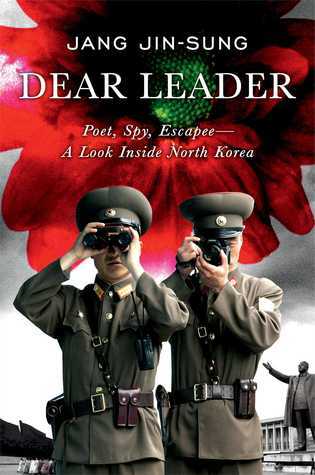
The narrator, Jang Jin-Sung, begins his life story with a mysterious trip to an unknown destination under tight scrutiny by Dear Leader's guards. He was excited to meet the Dear Leader after he got a hint a few days ago about being rewarded for his work. However, he was still anxious about being surrounded by more than twenty guards. Before meeting with the General, he and the other six civilians must clean his hands with an alcohol wipe and instructed not to look into his eyes when shaking hands with the General. When General Kim Jong-il appears to them while chasing after his puppy, the narrator shares a glimpse of disappointment with the General's lack of responses to their salutations. After the dinner, more questions emerge in the narrator's mind, trying to make sense of the contradiction between what he had been taught all this time and what he had witnessed about the Dear Leader.
The beginning of the narration offers a brief history of the Kim dynasty, which puts literature as the highest priority under their governance. Novels and poetry are occasionally used to praise the Kim family. Jang Jin-Sung became the youngest court poet and an employee of the United Front Department (UFD), giving him access to state secrets. UFD is an essential section of the Workers' Party responsible for inter-Korean espionage, policy-making and diplomacy. The department specialises in conducting psychological warfare operations against and concerning the South through cultural media such as the news, literary arts, music and film.
When Jang worked in the office, he had a South Korean pseudonym and transformed into a South Korean poet who wrote South Korean poetry and also a supporter of Kim Jong-il. The department has access to South Korean newspapers and books, which are restricted within the building. Their specialist work is rewarded with additional rations of imported food every Saturday taken from humanitarian materials.
The UFD is also responsible for creating news to be published in the Party newspaper or broadcast on television to convince the North Koreans that the country's achievements and strong leadership were admired by the people outside of the country. Then, the narration led to Jang's poetry receiving high praise from Kim Jong-il and being invited to become one of the 'Admitted' of Kim Jong-il. His new status guaranteed a privilege of immunity that allows him to be exempted from prosecution except for treason and explicit permission from Kim Jong-il himself.
Jang returned to his hometown and was bewildered by the state of poverty surrounding him. Many shabby hawkers sell their precious possessions, including tap water to anyone who wants to get their faces washed. There are also cotton comforters on sale stuffed with filters collected from old cigarette butts. Jang felt even more distressed after meeting his townsfolk and shocked when he learnt some had starved to death. He was filled with guilt for his privileged existence when he was surrounded by people in the impoverished state.
Jang struggled to write loyalist poetry after witnessing the impoverishment in his hometown. Due to his exposure to South Korean newspapers, he found more contradictory facts between what was being told and what he read from the outside world. This increased the difficulty for Jang to produce a poem with praises about the Leader. His conscience was tested whenever he discovered a different story about his country. While Jang was still seeking the truth then, he and his friend were forced to flee for their lives when his friend lost his book, which wasn't supposed to leave the perimeter of his office building.
The most distressing part for me was when Jang returned to his hometown, and the raw emotions were realistically expressed in the book. It's disheartening to read when his friend's family took three months to save a bowl of rice for him and later passed it around the family.
Besides telling his experience of fleeing North Korea, we also get to know the successes and failures of North Korean refugees after crossing the border. Men can be sent back to North Korea, or they can buy their way to South Korea if they have sufficient money. Unfortunately, women got a different life. North Korean women were graded like pigs and sold to men, which could end up on remote farms or married to a disabled man. Due to the buyers' heavy investment in those women, some women are kept in chains, preventing them from running away until they have their first baby.
Unfortunately, when I wished to know more about what happened to the author these recent years, what I found on the Internet was some shameful and disgusting news about his acts towards vulnerable women. I felt disappointed that he just threw the freedom that he had strived so hard for and that the death of his best friend seemed no longer meaningful to him. What a waste of life! I don't understand why someone who had a hard life and worked so hard for freedom had turned out to be like that in the end. Putting aside from the latest update about the author's life, the biography was well-written and filled with raw emotions. I wish I didn't look up his life on the Internet.
| ISBN | Number of Pages | Rating |
|---|---|---|
| 9781448177424 (eBook) | 352 | ★★★★ (4/5) |
| Reviews | Goodreads | The StoryGraph |